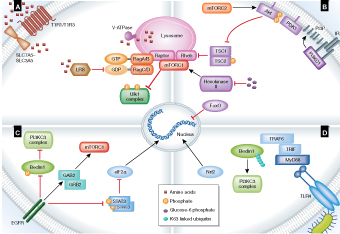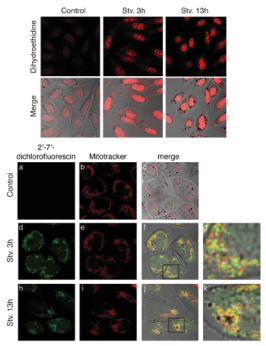| Eukaryotes have developed signaling networks that control transcription, translation, and protein modification to adapt to changing environmental conditions. At times of shortage, cells need to save energy and nutrients by maintaining basal and essential activities. Autophagy lies at a fundamental junction in cell fate, determining death or survival. The integration between stress-induced pathways and autophagic proteins is rather complex, given that different cues are funneled to activate a relatively small pool of autophagic proteins. The continuing discovery of connections between well-established signaling pathways and autophagy-related proteins, as well as of new regulators of both processes, contributes substantially to our understanding of the regulation of autophagy in response to changes in the extracellular and intracellular environment. We have discovered the involvement of ROS in regulation of starvation-induced autophagy characterizing H2O2 as signaling molecules in starvation-induced autophagy. At present we are looking on a variety of signaling processes and post translational modifications involved in the regulation of autophagy. |
|
 |


